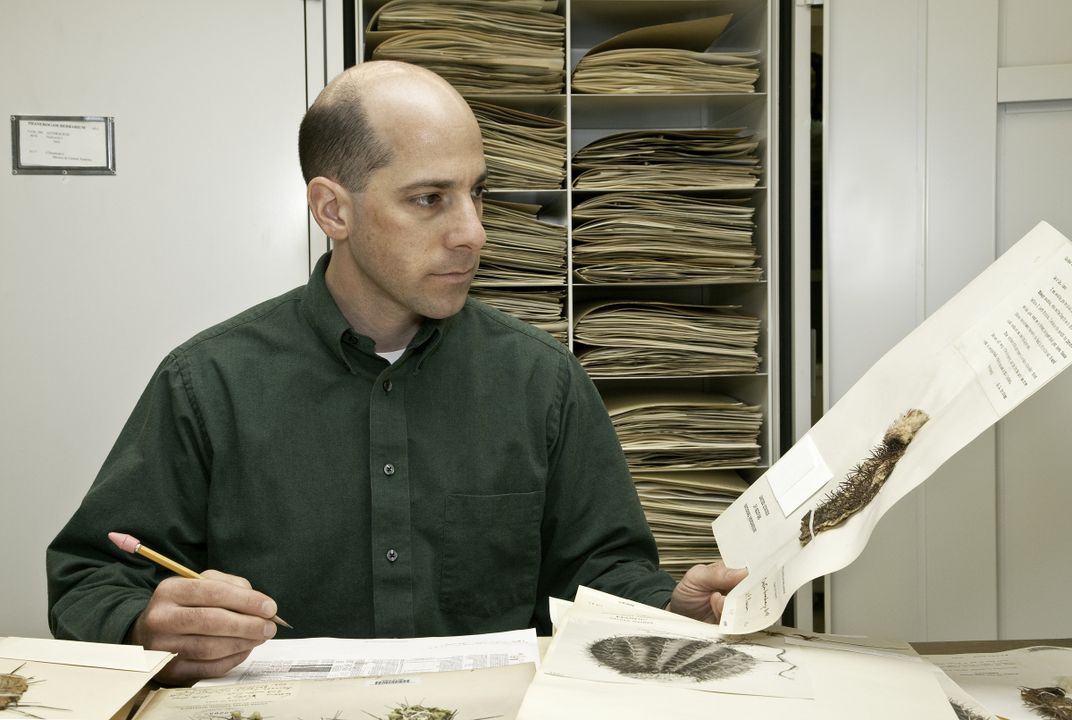Smithsonian Botanist Finds Hope in Youth Leaders
Q+A with Earth Optimism speaker Gary Krupnick, Ph.D., Head of the Plant Conservation Unit at NMNH.
:focal(2268x1047:2269x1048)/https://tf-cmsv2-smithsonianmag-media.s3.amazonaws.com/blogging/featured/IMG_20140711_100259725.jpg)
Dr. Gary Krupnick is a research scientist at the Smithsonian’s National Museum of Natural History, where he heads up the Plant Conservation Unit. He advises organizations on IUCN plant listings and represents the Smithsonian on committees for plant conservation and pollination. Ahead of the Earth Optimism Summit* in April, Gary tells us where he finds hope amidst the doom-and-gloom rhetoric clouding conservation.
What motivated you to be involved in conservation?
As an undergraduate student at the University of California San Diego I took a course in Biodiversity and Conservation. It introduced me to the impacts that habitat degradation and habitat loss has had on plant and animal species across the planet. During my undergraduate years, the discovery of the depletion of the ozone layer above the Antarctic was first announced. Seeing how the world’s countries had came together to ban ozone-depleting chlorofluorocarbons (CFCs) to help reverse the trends in the depletion of the ozone layer gave me hope. Such actions allowed me to see the positive impact that studying conservation biology can have on our planet.
What makes you optimistic for the future of our planet?
The environmental youth movement gives me hope for the future. Today’s teens and young adults have always had climate change as a part of their lives. Many are motivated to make a difference as it directly impacts their future. Today’s youth leaders are organized, driven, visible, and know how to use technology to build public interest. These leaders are the future voters, future CEOs, and future politicians that will make the world a better place than the one they were born into.

Is there someone that inspires you to stay hopeful despite the doom-and-gloom rhetoric?
Nancy Knowlton introduced me to the concept of Earth Optimism. She has eloquently stated that while conservation biology is filled with sobering statistics of degradation and loss, other scientific disciplines celebrate new discoveries. Medical students are taught how to make and keep people healthy while conservation biologists seem to teach students how to write obituaries of nature. While Nancy’s focus had been centered on Ocean Optimism, I collaborated with Nancy on a project in which we found contemporary success stories in plant conservation. We published a paper in 2017 (Annals of the Missouri Botanical Garden, vol. 102) that identified successes in plant science, and we hope these examples help recognize, learn from, replicate, scale up, and celebrate other successes as a means to motivate further action.
Do you have a favorite success story?
The Million Pollinator Garden Challenge had set out to register a million gardens and landscapes to support the health of pollinators. In just three years, over a million gardens were registered and involved an estimated 8 million people in the United States, Canada, Mexico, and across the globe. From tiny yards to public gardens, a network of approximately 5 million acres were restored and enhanced to benefit pollinators. It is with hope that our collective efforts will help populations of bees, butterflies, moths, flies, beetles, birds, and bats.
What are you looking forward to the most at the 2020 Earth Optimism Summit*?
I attended the first Earth Optimism Summit in 2017 which I found to be incredibly inspirational. The presentations were excellent, and I was able to take home specific actions that I learned during a number of sessions. I’m looking forward to learning more, getting further inspired, and meeting deep thinkers and young students alike.
----
* As a public health precaution, the Smithsonian is postponing the Washington, D.C.-based summit to a later date. Instead, on the 50th anniversary of Earth Day 2020, join us online for an Earth Optimism digital event that will showcase stories of both small and large-scale actions that frame the conversation and demonstrate that success is possible. The same speakers, the same content -- digitally! Stay tuned here and on our social media feeds for updates on how to watch online, and for a new date for our rescheduled in-person summit. We invite you to share your stories of success on #EarthOptimism and help us inspire millions of people around the world for greater impact!

